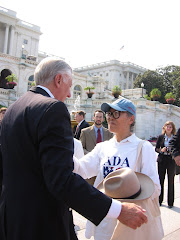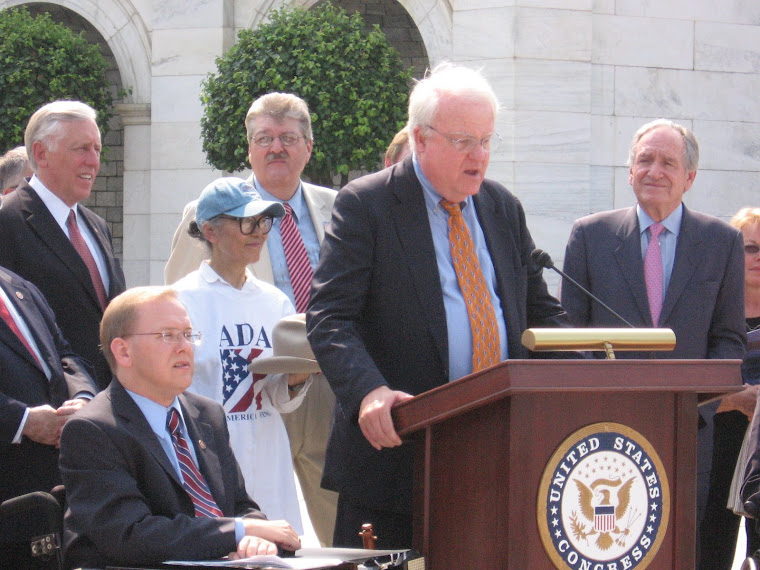Rep. George Miller (D-CA), Chairman of the House Education & Labor Committee, provided the first statement on the floor. Referencing House testimony given in the Education & Labor Committee earlier this year, Chairman Miller outlined the experience of Carey McClure, an electrician whose job offer was rescinded after his employer discovered he had muscular dystrophy, to explain the need for restoration of Congressional intent for the ADA. Next referencing the U.S. Chamber of Commerce's support of the legislation, he went on to characterize the legislation as a balanced approach to ensure reasonable protections for people with disabilities.
Rep. Buck McKeon (R-CA), Ranking Member of the House Education & Labor Committee, briefly spoke next, before reserving the remainder of his time, and referenced the process of negotiations between the employer and disability communities in arriving at the legislation before the House today, characterizing that process as truly one of give and take.
Rep. Jim Langevin (D-RI) spoke next, poignantly referring to his life as a person with a disability both before and after the ADA. He stated that he remembered when, before the ADA, reasonable accommodations were seen as personal courtesies rather than civil rights. He urged his fellow Members to vote for H.R. 3195 to send a strong message that discrimination would not be tolerated.
Rep. Lynn Woolsey (D-CA) next stated that people with disabilities just want the same opportunities as anyone else and that it's time to do the right thing and bring back the original intent of Congress in passing the ADA.
After Rep. Woolsey, Rep. Robert Andrews (D-NJ) spoke, saying that words have meanings and that when the ADA was passed, "disability" had a common sense interpretation. Andrews said that while Americans on the street could apply common sense to determine who was and wasn't disabled for purposes of the protections of the ADA, it was unfortunate that the same reasoning was not present on the Supreme Court. Andrews said that H.R. 3195 represents a fair set of standards, representing a well-struck balance. He stated that H.R. 3195 would stand as a "liberation of talents," enabling people with disabilities who have been kept out of the workplace to enter it...
...Read who else spoke, what was said, and how the floor time concluded before the vote.



2 comments:
flatten your abs -
forex trading machine -
forex trading made ez -
get your exgirlfriend back -
google snatch -
governmentregistry -
government registry -
grow taller 4 idiots -
guy gets girl -
hcg recipes -
homemadeenergy -
home made energy -
how to break 80 -
hyper vre -
instant domain cash -
i software tv -
jamo rama acoustic -
linden method -
lose the back pain -
magni work -
maternityacupressure -
maternity acupressure -
musclegainingsecrets -
muscle gaining secrets -
negative calorie diet -
one minute cure -
one week marketing -
only 4 gamers -
paid surveys online -
panic away -
pc on point -
pc tv 4 me -
perfect optimizer -
phone number scan -
eatstopeat -
eat stop eat -
error killer -
error smart -
evidence eraser -
evidence smart -
fatburningfurnace -
fat burning furnace -
fatloss4idiots -
fat loss 4 idiots -
fitnessmodelprogram -
fitness model program -
fit yummy yummy -
flattenyourabs -
flatten your abs -
flat to fab -
forex derivative -
gas 4 free -
get better grades -
golf swing guru -
governmentregistry -
government registry -
heartburn no more -
homemadeenergy -
home made energy -
hyper vre -
i software tv -
legit online jobs -
linden method -
london forex rush -
master word smith -
maternityacupressure -
maternity acupressure -
max pro system -
Post a Comment